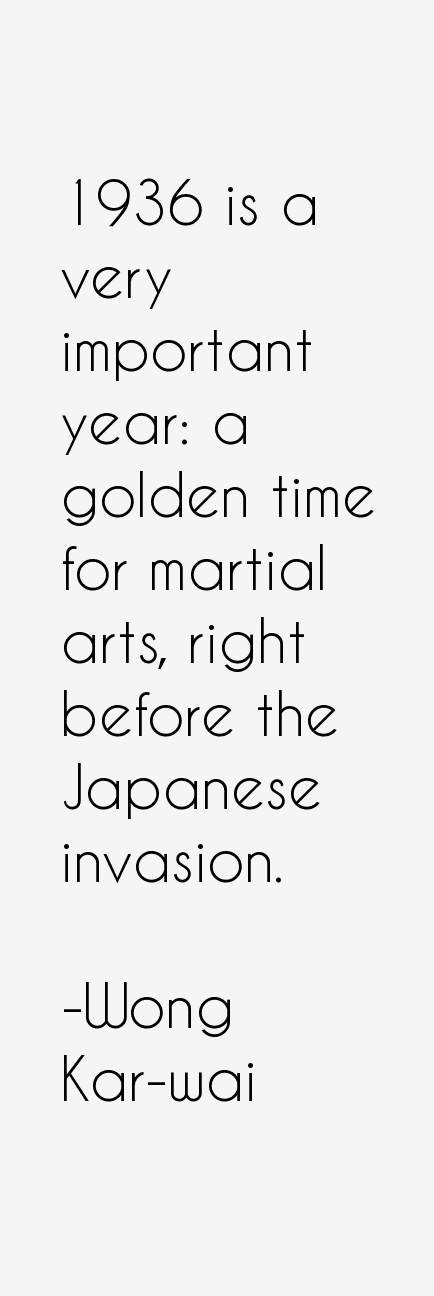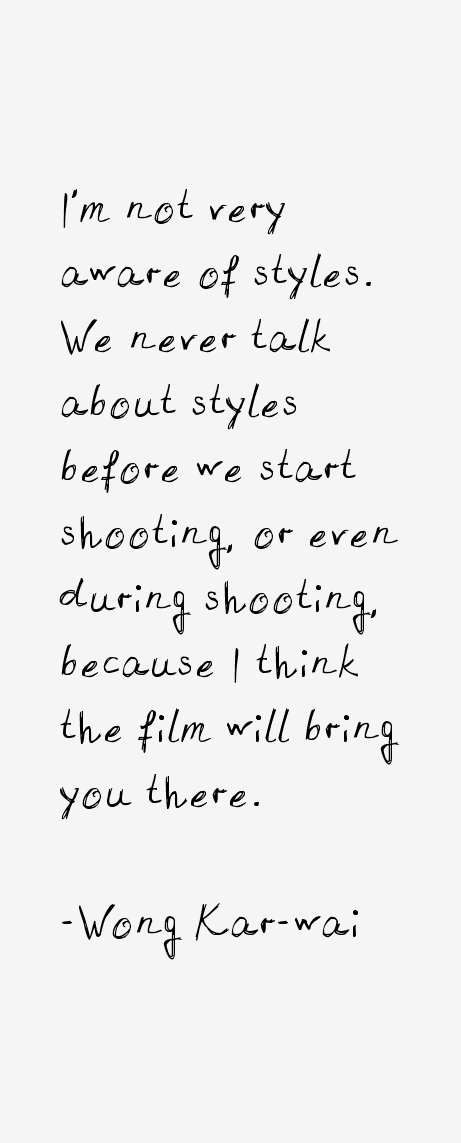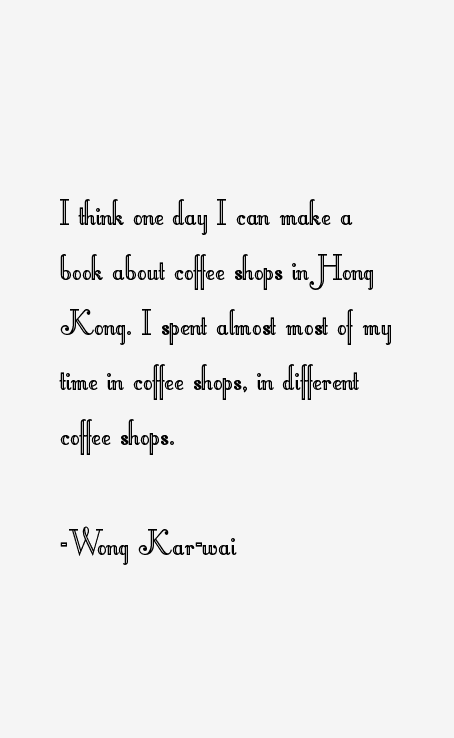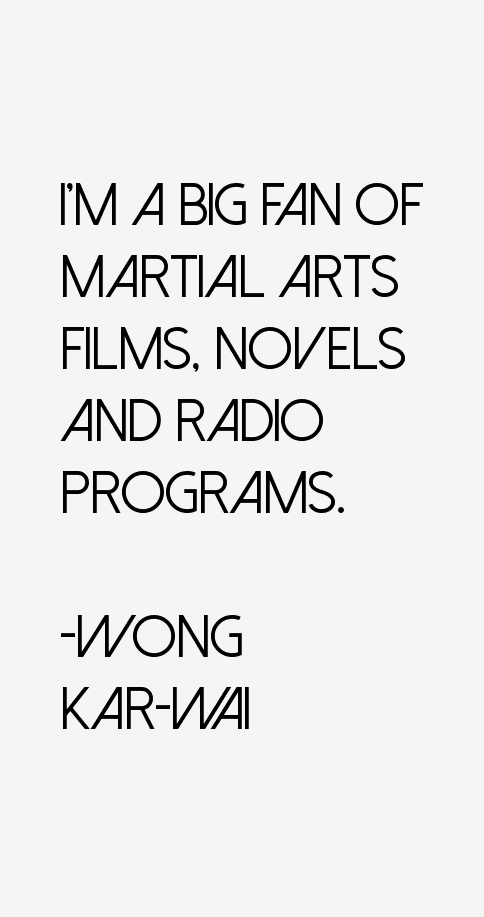Wong Kar-wai Quotes & Sayings
19 most famous Wong Kar-wai quotes and sayings. These are the first 10 quotes we have for him. He's a 67 year old Chinese director born on Jul 17, 1958.
“I'm not coming from film school. I learned cinema in the cinema watching films, so you always have a curiosity. I say, 'Well, what if I make a film in this genre? What if I make this film like this?'”
“My mother has a very big family in Shanghai, so I have, like, almost 40 cousins, so we stayed together all the time. So by the time I get to Hong Kong, I become the only child and the only one surrounded by adults, you know.”

“Some actors like encouragement. Some actors prefer to have pressure. And sometimes, for some actors, its better to give your comment by silence, because they are so skillful, so gifted, that they understand without talking too much.”

“1936 is a very important year: a golden time for martial arts, right before the Japanese invasion.”
“During shooting, you have the idea, like, of this certain dress on this actress, but it's not to fit, so you have to make all of these alterations and modifications. So in a way, I build the characters with the cast, and it's sort of custom-made, the whole process, and then you have to make all of these adjustments.”

“I'm not very aware of styles. We never talk about styles before we start shooting, or even during shooting, because I think the film will bring you there.”
“In my first film, we always tried to have a script and work in a normal way, but I was constantly changing things during shooting. Because I worked as a scriptwriter for 10 years, I understood that directors always wanted to change what was originally written, to improve on it.”
“Sometimes, when you're on the streets, certain music inspires you, and then you have a vision. But, at the end of the day, it's a synthesis of visions, so you have to think, as a director, of a scene, or how to deliver a line, or how do this visually.”

“I think one day I can make a book about coffee shops in Hong Kong. I spent almost most of my time in coffee shops, in different coffee shops.”

“I'm a big fan of martial arts films, novels and radio programs.”
Wong Kar-wai Quotes Rating
No Ratings Yet
Leave A Comment
























